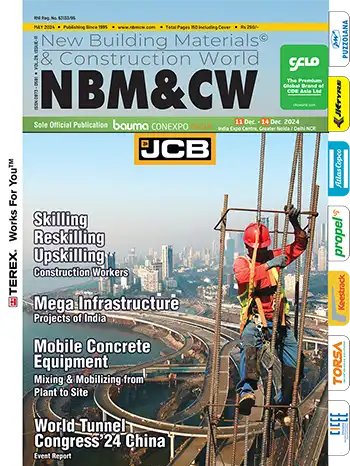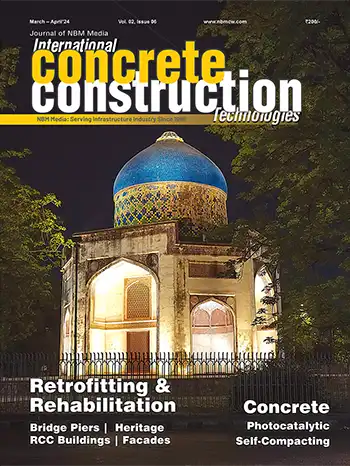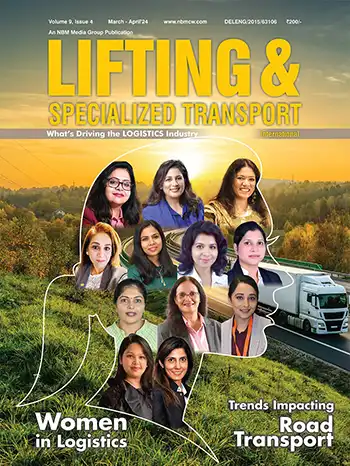CE Industry Finding Opportunity in Adversity
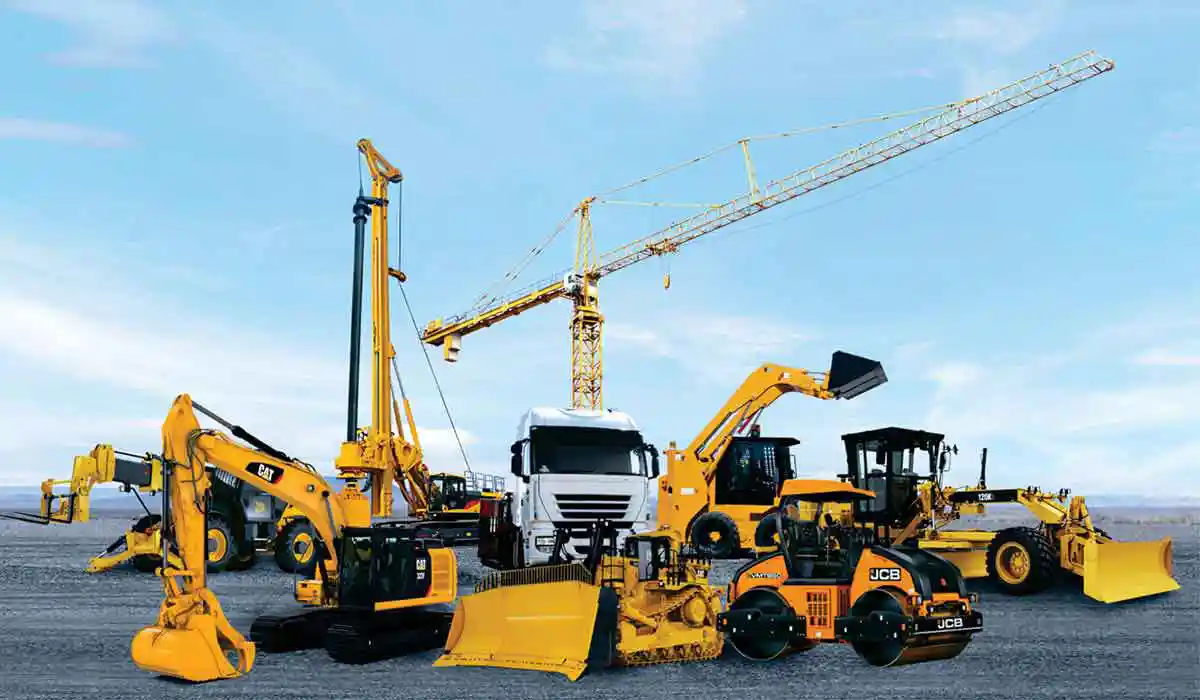
Industry captains in the construction and equipment manufacturing sector of India discuss solutions to deal with the current challenges and the way forward once the lockdown is lifted.
No doubt, Covid-19 has thrown a formidable challenge to the industry and the policy makers alike, and now, the Government and the industry must find ways to turn this adversity into an opportunity in order to restart their projects and revive the country’s economy.
Taking forward CE businesses
The key question playing on everyone’s mind is how to restart the economy and what is the way forward to manage construction and infra businesses that have been disrupted by the pandemic. Given the fact that after agriculture, infrastructure construction and the real estate sectors are the second largest employer in the country, and are highly responsible for propelling the country’s overall development, the CE industry must act expeditiously and kick start their businesses. According to a KPMG report, projects worth more than `59 lakh crores are currently under development.

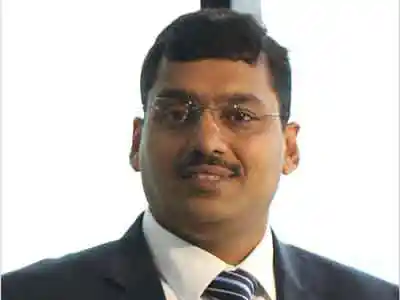
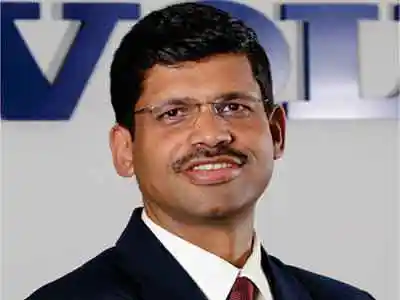
Equipment finance & Treasury plan
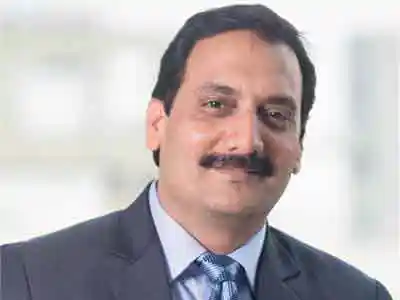
In his view, the construction industry as a whole, including OEMs and NBFCs, should focus on a short-term perspective and develop a treasury plan to have deeper control on their short-and medium-term cash flow requirements. Instead of taking cost cutting measures like reducing their work force etc., companies should focus on cutting variable costs by using more technology. Localization should not be done only of equipment or components but the state governments should be liberal on employing labourers in their region for road and other projects, and companies should take a modular approach and not an integrated approach towards cost management in this time of crisis.
He strongly feels that releasing 50% of the retention money of the contractors by the respective principals would bring some liquidity in the market. Labour cess of 30,000 crores, which was collected, can be released to the contractors so that they can give it to their labourers and use it for other work. Apart from banks and NBFCs, this retention money can bring enough liquidity in the market. “I feel that after this crisis, customer behaviour will shift from owning an equipment to acquiring an equipment on rent, as no one would be willing to buy immediately after the lockdown is lifted, and would prefer to use on rent, to save money. The rental market will be a key opportunity for the industry and it is going to improve from 3% to 10%,” he says.
He also feels that a one-time restructuring of all segments of customers in the industry for a period of 12 to 24 months, should be allowed by RBI without any adverse change in asset classification. This would be required as most projects would take six to twelve months to mobilise resources in attempting to reach desired capacity levels.
Growing the Rental business
It is felt that pooling of idle equipment, strengthening rental companies, and flexible financing through NBFCs, if emphasized, could become a win-win proposition for both buyers and OEMs who are facing a liquidity crunch. The predominant opinion in this matter is that CSR activity has proven to become more than just a regulatory requirement and needs to be part of day-to-day business. “It is evident that there will be a shift in customer behaviour and hence it has become crucial to create an ecosystem that starts providing services such as renting. The rental business releases plenty of capital in the system and going forward the industry needs to capitalize on renting opportunities,” states Vyas.

Supporting MSMEs
Dimitrov Krishnan opines that MSMEs are at both ends of the value chain as suppliers and dealers. Adequate funding flow to MSMEs is a great challenge and in this time OEMs need to step forward to support the continuity of these critical part of CE industry value chain. MSMEs are each having different requirements, different strengths and capabilities, for eg.. some may be financially poor but technically sound, while some may be more advanced. “They may be competent and very capable but may lack financial management. So, the OEMs need to assess them individually and provide them the necessary support – at least in the short time, since we do not know the length and the depth of the current crisis. Communication with our MSMEs, SMEs, dealers, suppliers, distributors, workers and other stakeholders is important not only from a liquidity perspective but also to engage them in ways that will enhance their competence,” he states.
Make in India
Up till now, the global equipment and component buyers considered China as the hub for supplying machines and components, but after the outbreak of Covid-19, companies across the world are looking at alternative manufacturing bases, including India. In fact, India has the potential to become a strong manufacturing hub and the government and the CE Industry should exploit the opportunity to the hilt.
Arvind Garg says, “In a global crisis of such a magnitude, we should not be overwhelmed, but must find ways of overcoming these challenges. We should be bold and strengthen our capabilities, bearing in mind the long-term perspective, to lift the construction and infrastructure sector from the current slowdown. We have a great opportunity now to strengthen the Honourable Prime Minister’s Make in India initiative – we must come together as an industry to localise critical components, share the best practices within the industry and build a strong ecosystem of collaboration that will support us in times to come. iCEMA, our industry association can play a major role in this direction, with the support of our parent ministry- the DHI.”
Deepak Garg adds, “For the OEMs to ensure an uninterrupted supply of equipment, parts and other components to project sites, the industry must have a robust supply chain, with lesser dependency on imports and more focus on Make in India products. The current crisis has offered an opportunity for large scale localization, which will ensure smooth supply of parts and components in comparatively in quicker times and for smooth functioning at project sites.
SMEs, if well supported by the CE Industry, can play a major role in enabling a smooth supply of parts and components, with local production of parts and components by local workers. The industry players must also take care of the financial requirements of the SMEs as they may have limitations in dealing with banks and other financial institutions. It is also important that the industry players motivate the stakeholders who include the equipment makers, suppliers, dealers, workers and customers. The situation demands an uninterrupted supply of men and machines and allied spare parts and components.”
V G Sakthikumar opines that in the emerging scenario, especially after the outbreak of Covid-19, India based companies would like to relay more on local vendors to avoid uncertainties. Besides, a large number of global equipment and components buyers are expected to start in India market as an alternate to China, for which the Indian government is already formulating plans and strategies. In this unfolding scenario, the CE Industry must also adopt attractive and innovative strategies to attract global equipment and components buyers to the Indian construction equipment manufacturing market.

Key takeawaysArticle source: Webinar by bauma Conexpo.
- The infrastructure and construction sectors are highly responsible for propelling India’s development since they are the second largest employment providers in the country, after agriculture. The industry is geared up to play a key role to kick start the economy after the lockdown.
- An increased focus on digitalization is also the need of the hour. Considering all the necessary precautions to be taken even after the lockdown, social distancing in the construction site would lead to a shift from labour extensive work to an increase in mechanisation of the construction sites. Increased mechanisation, however, needs the support of government in making financing options more lucrative
- Compared to the concentrations in China, Japan, Korea or Germany, India’s scale is comparatively lower. Though, we have the capability and the bandwidth to support large scale initiatives, a considerable acceleration in the speed of work at such a time could be our way forward.
- We should strengthen the SMEs and the MSMEs financially and build a sustainable eco-system keeping in mind their long- term requirements.
- Any crisis tends to also bring clarity, and by putting the priorities right, productivity will be redefined in the near future. India can become a manufacturing hub, not only for the domestic market but also for international markets.
- The three-month moratorium extended by RBI may impact the participation of NBFCs in the construction equipment sector. Support by RBI will help maintain funding for the sector. The Troubled Asset Relief Program is a modular approach to boost productivity in the infrastructure sector.
Official Media: NBM&CW
NBM&CW May 2020














